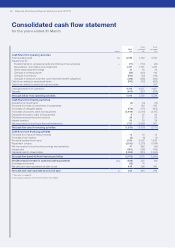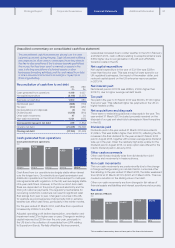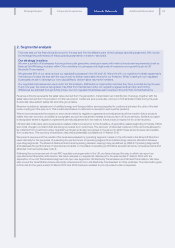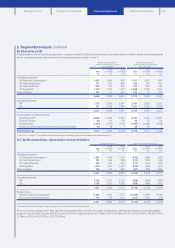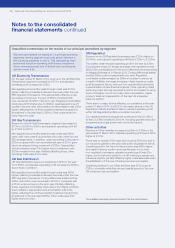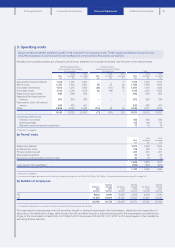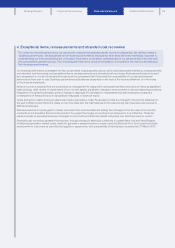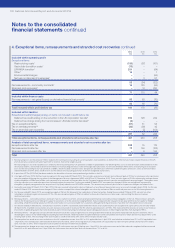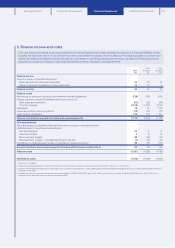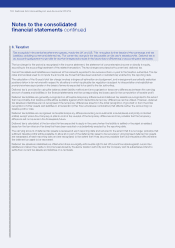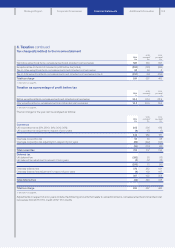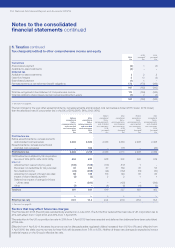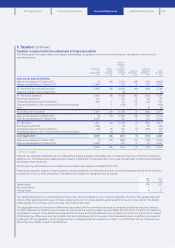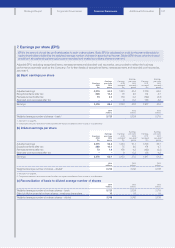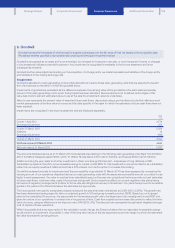National Grid 2014 Annual Report Download - page 101
Download and view the complete annual report
Please find page 101 of the 2014 National Grid annual report below. You can navigate through the pages in the report by either clicking on the pages listed below, or by using the keyword search tool below to find specific information within the annual report.
Strategic Report Corporate Governance Financial Statements Additional Information
4. Exceptional items, remeasurements and stranded cost recoveries
To monitor our financial performance, we use a profit measure that excludes certain income and expenses. We call that measure
‘business performance’. We exclude items from business performance because we think these items are individually important to
understanding our financial performance. If included, these items could distort understanding of our performance for the year and
thecomparability between periods. This note analyses these items, which are included in our results for the year but are excluded
frombusiness performance.
Our financial performance is analysed into two components: business performance, which excludes exceptional items, remeasurements
and stranded cost recoveries; and exceptional items, remeasurements and stranded cost recoveries. Business performance is used
bymanagement to monitor financial performance as it is considered that it improves the comparability of our reported financial
performance from year to year. Business performance subtotals are presented on the face of the income statement or in the notes
tothefinancial statements.
Items of income or expense that are considered by management for designation as exceptional items include such items as significant
restructurings, write-downs or impairments of non-current assets, significant changes in environmental or decommissioning provisions,
integration of acquired businesses, gains or losses on disposals of businesses or investments and debt redemption costs as a
consequence of transactions such as significant disposals or issues of equity.
Costs arising from restructuring programmes include redundancy costs. Redundancy costs are charged to the income statement in
theyear in which a commitment is made to incur the costs and the main features of the restructuring plan have been announced to
affected employees.
Remeasurements comprise gains or losses recorded in the income statement arising from changes in the fair value of commodity
contracts and of derivative financial instruments to the extent that hedge accounting is not achieved or is not effective. These fair
valuesincrease or decrease because of changes in commodity and financial indices and prices over which we have no control.
Stranded cost recoveries represent the recovery, through charges to electricity customers in upstate New York and New England,
ofhistorical generation-related costs, related to generation assets that are no longer owned by National Grid. Such costs have been
recovered from customers as permitted by regulatory agreements, with substantially all having been recovered by 31 March 2012.
99



